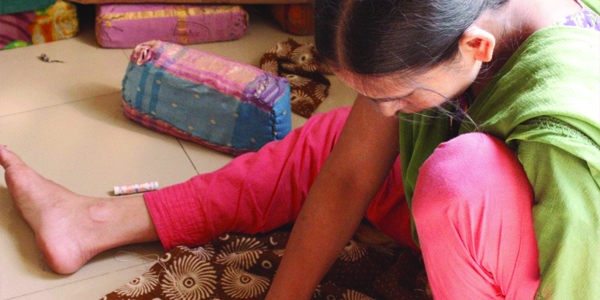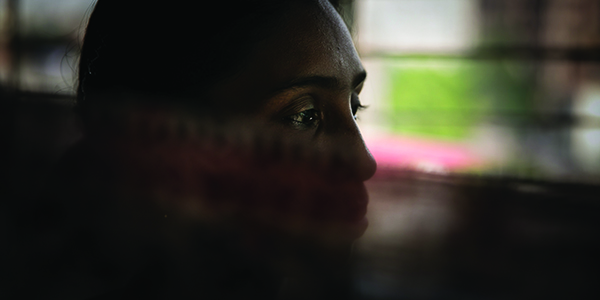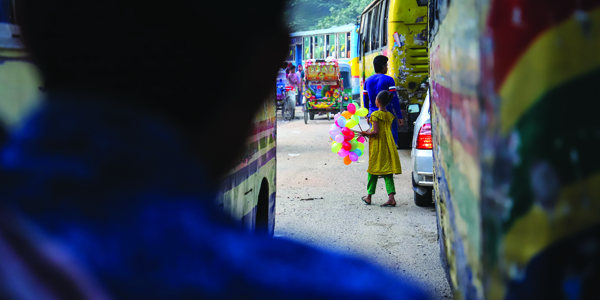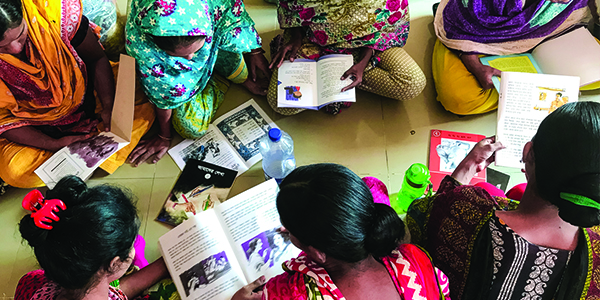Why do women
end up trafficked?
end up trafficked?

Fariha was eight years old when her parents sent her to work as a maid in a home to help support her family. At twelve years old they arranged her marriage to an older man and she soon gave birth to their child. Her husband was abusive, and one day she had had enough. She ran from the home. A man approached her and said he could help her to get a good job. Instead he sold her to a brothel and she became trapped in exploitation.
↓

We know that Fariha’s story is not an uncommon one. Trafficking is widespread across Bangladesh due to it being a hotspot as a source, transit and destination country for sex trafficking. Conservative estimates show that around 100,000 women in Bangladesh are working as commercial sex workers, and for most, this is not their choice. The reality is that this number is just a small sample of the number of women that are being exploited.
Even more devastating, is that an estimated 29,000 underage girls are trapped in commercial sexual exploitation, robbing them of their childhood and causing a lifetime of trauma.
In Bangladesh, systemic poverty, gender inequality, and cultural factors has led many women to fall into the trap of sexual exploitation, with very few alternatives.
Trafficking is a complex problem. Women cannot simply leave and get a different job, even if they are offered better employment opportunities. To see the cycle broken and women free, it requires smart intervention and addressing root causes; otherwise the cycle often continues.
↓

SYSTEMIC POVERTY
Poverty is not simply a lack of decent employment. It starts with little to no education, not getting enough food, leading to preventable diseases. Unable to provide their children with anything different, the cycle repeats.
GENDER INEQUALITY
Bangladesh has made strides in gender equality in recent years, but the fact remains that everyone wants sons. Sons are the ones that support their parents in adulthood, while daughters require an expensive dowry for marriage and contribute to her in-laws instead. Girls may receive less food, less education, and may be married off too young in order to pay less dowry or to protect her from unwanted male attention. A family with very few resources may see a daughter as a financial drain and a strain on the family.
CULTURAL FACTORS
Any stain on a girl’s reputation can follow her into her future. Sexual harassment, unwanted suitors, rape, or human trafficking mean a girl is seen as dirty and no longer respected in society. For many women and children, this shame has led to the complete abandonment from their families, even if their families sold them or were complicit in their exploitation. So if a woman is able to escape a brothel, return to Bangladesh after being trafficked abroad, leave a job where she was being raped… where does she go? She has nowhere to live, no one to support her, and no one to help her adjust to a normal life again.
↓

For those who were trafficked or sent away as children, they don’t even know what “normal” life is. In the brothels, women often become addicted to drugs, as a coping mechanism or as means to put on weight and appear “healthy”.
When society tells you that you are bad with no hope of redemption, you believe that message. It’s a long journey to even dare to hope. Receiving an opportunity to heal, support yourself, educate your child, live with dignity…. that is the first step. This is why Friends of Basha is so important in breaking the cycle.
Donate today to support more women live in freedom!
↓

Want to read more and be informed?
-
‘My Husband Sold Me to a Brothel.’ Elle Magazine, October 2018
-
For sex workers in Bangladesh, the future is as bleak as the past. SCMP, January 2017
-
Bangladesh’s Biggest Brothel. Aljazeera, July 2017
-
Growing number of Bangladeshi women in Indian brothels. Dhaka Tribune, June 2017
